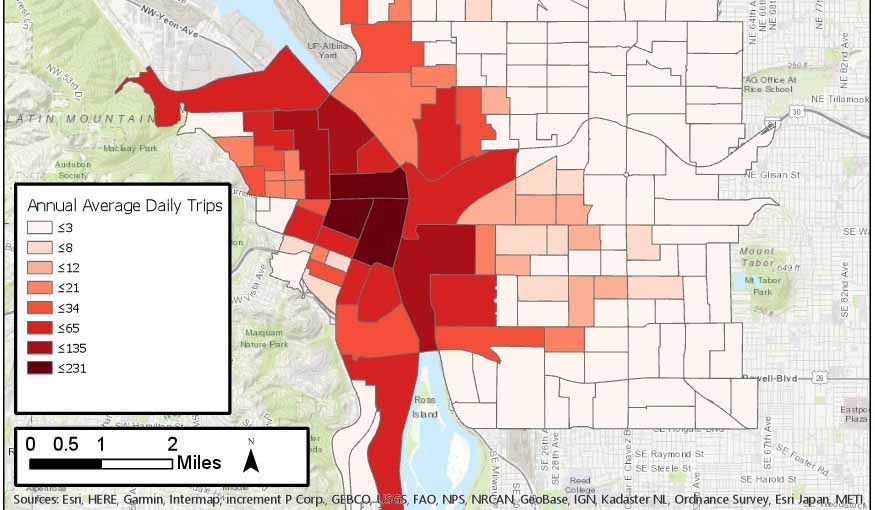The increasing availability of shared mobility options is affecting travel behavior and travel demand. Smartphone-based technology has permitted the rapid spread of bike-sharing, car-sharing, ride-sharing, and ride-hailing options, which has affected how people use traditional travel modes, especially private cars and public transit. However, although transportation policies need to consider these changes, a lack of data impedes the development of programs and policies that could address both the positive and negative aspects of the new travel options.
This project aimed to provide much needed information on how app-based shared mobility options are affecting the demand for traditional private individual and public transit travel, and specifically how they are changing the parameters that determine mode choice and mode share.
The research team used three available secondary data sets to explore whether travelers are choosing shared mobility options to replace or complement traditional modes. The first set of data came from the 2017 Puget Sound Regional Household Travel survey. The researchers found that travelers were increasingly using car-sharing and ride-hailing to replace household vehicle trips. However, these modes also created more travel, which could both add to traffic congestion and improve access to activities. Substitution of household vehicle trips with transit, biking, and additional walking differed by day of week and commute status, suggesting that future research should focus on the temporal and purpose characteristics of trips by shared mobility.
The second set of data came from the Washington State Commute Trip Reduction (CTR) program. The researchers found that in the short term, the CTR instruments used to collect data about commute trips could address questions about shared mobility options. In the long term, CTR employer and employee surveys could be redesigned to assist in evaluating employers’ transportation demand management efforts. In addition, deploying apps to support commute trips could yield invaluable and timely information that could inform transportation policy and research.
The third set of data addressed “shared micro-mobility,” an increasingly popular form of shared mobility that includes bicycles and scooters. Companies that offer this service disperse bicycles and scooters across individual cities for customers to use, and a few companies provide real-time location data for their bikes and scooters. The researchers created a computer program to continuously “scrape” and archive those data from the Internet. A pilot study analyzed one year of data and created trip generation models.
As app-based travel becomes ubiquitous, various forms of shared mobility will increasingly be convenient and practical travel options. This project demonstrated that some data on app-based shared mobility are both publicly available and useful for exploring trends; the team recommended more research to explore the use of those data. However, the data from most travel surveys were found to be insufficiently fine-grained to help planners and engineers in shaping policies and programs that can integrate shared mobility with traditional mobility options.
Authors:
Anne Vernez Moudon, UW Urban Form Lab, Department of Urban Design and Planning
Xuegang Jeff Ban, UW Department of Civil and Environmental Engineering
Michael Lowry, UI Department of Civil and Environmental Engineering
Qing Shen, UW Department of Urban Design and Planning
Matthew Mills, UI
Feiyang Sun, UW
Yiyuan Wang, UW
Sponsors:
PacTrans
WSDOT
Puget Sound Regional Council

